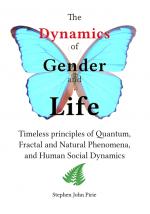Recently I was reading an interesting book, and it advised one to wake early one morning (in the dead of night, around the 3.30am mark) and quietly ask what is really important in one's life. As was explained in my Letting go post, I've drifted in recent years, not exactly sure how I can best be of benefit and service to people.
Anyway, I did as the author suggested, waking early this morning around 3.00 am-ish, and the immediate and easy answer or strong natural sense of purpose was my work to uncover and 'mend' the old-paradigm thinking and beliefs that beset and bedevil our world — in other words, and for want of a better description — to be a good Belief Doctor. As I've explained elsewhere1, the old-paradigm is rooted in 'either-or' thinking: right or wrong, pure or impure, good or bad, us versus them. It's the basis of tribalism, which within the context of the emerging need for great collaboration on a planetary scale, makes such beliefs a danger to the survival of our race.2
Recently I picked up and noted that in a New-Age magazine this pernicious, highly-debilitating 'either-or' thinking was still quite evident. The article was centred on the use of the Enneagram, and how our conscious egos are 'impure' (and thus 'bad'). The author writes "What we thought was unique to ourselves is not so special after all." This is, on quite basic terms, a nonsense statement.
If any part within any wholeness is not unique, then the whole has employed or utilised a stupid duplicity that undermines the very purpose of existence. Every part, like every snowflake is amazingly and uniquely itself. To believe otherwise undermines our very reason for being ... to be ourselves, which in turn enriches the whole (all). Deny One and we must (since all is interconnected in 'Oneness') deny All.
To deny our unique individuality is a slap in the face of God (see 'All God, all good'). But the author goes on, with even more highly-pernicious statements: "What is truly lovable is pure essence" (i.e. not you, or any individuality that you may wish to cherish), and "the ever-present truth of who you really are (is): pure, unlimited, empty, silent...". No, that's the source of all, from which our individual and unique egos spring. We're unlimited, full, silent while being limited, full, noisy, fallen, irascible, rambunctious, noisy, fun, lively individuals. We're both at-once, not either-or.
Tell-tale signs of old-paradigm thinking
How do we quickly recognise an old-paradigm thinker? Answering 'the wrist" to the question "where is the divide between the hand and the body?" is one tell-tale sign that the respondent is still rooted in old-paradigm thinking.
Another is the belief in being able to 'transcend the ego' or that there is something wrong with 'individuality'. When applying the key principles of life, we can see how many people favour one side (individuality, 'oneness') at the expense of the other. Another tell-tale sign is when absolutes such as 'pure', 'perfect' and 'spiritual' are used in contrast to descriptions of our everyday reality. Such distinctions (e.g. between "pure" and "impure") began, as explained, around the time of Plato, and continue to this day.
Update
Reflecting on the above, I came to the idea that those who promote ideal states of enlightenment, perfection and the like, do so for quite earthy, simple reasons — there's a buck in it for those who promote such things. Pushing the ideal of perfection, transcending the ego and the like, establishes a gap, between the actual lives we're living and some not-now, not-here ideal. And in that gap, there's an opportunity for one to claim "secret" or "inside" knowledge for which others must pay to receive. No gap, no bucks to be gleaned. No gap, no superior "I know, you don't, so pay me to learn what I know".
No gap would put most religions out of business, along with, I sense, the vast majority of "spiritual" teachers. See "Calling Gurus to Account".
See Also
- 1. See 'The Evolution of the Human Psyche' and 'Key Principle of life, for life no. 2'
- 2. And as Mark Shuttleworth asserted, "Let’s be clear: tribalism makes you stupid." Source: http://www.markshuttleworth.com/archives/439
